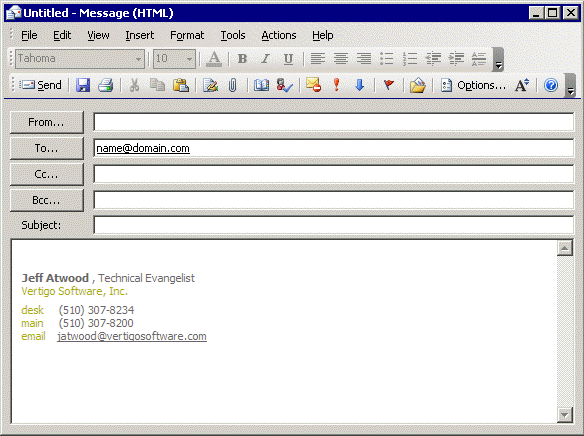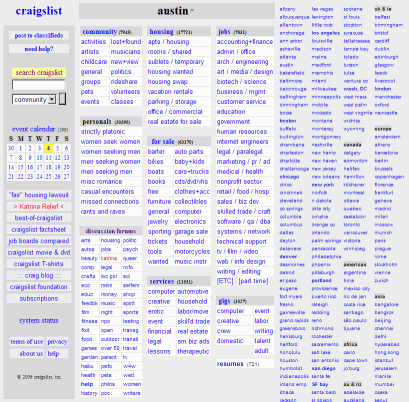
user experience
Excess Blog Flair
I recently happened upon Tom Raftery’s blog. I’m sure Tom’s a great guy, but what’s up with all the visual noise on his blog? I count 24 pieces of flair in the bookmark section alone. STAN I need to talk about your flair. JOANNA Really? I






